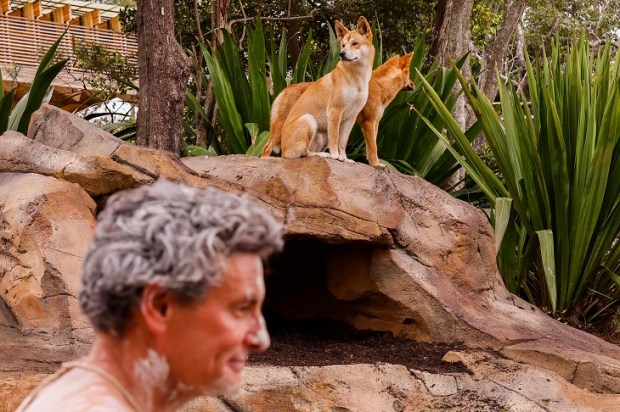The news that Australia does not get an exemption from Trump’s steel and aluminium tariffs is a failure of the Albanese government, and Dutton should set out steps as to how he would have done things differently.
Perhaps nothing would have been successful, but it seems clear that the current Ambassador, Kevin Rudd, is not the best person to maximise our influence with the new administration.
Before assuming his diplomatic role, Rudd was openly critical of Trump, labelling him as ‘the most destructive president in history’ and a ‘village idiot’. Even going as far as calling Trump a ‘traitor’ to the West.
For two years as Ambassador, Rudd never deleted his social media criticisms of Trump, even though Trump was always the Republican front-running candidate. He only did so after the November 2024 election.
Trump has criticised Rudd directly. In an interview with Nigel Farage, he said he didn’t know much about him but had heard he was a bit ‘nasty’ and not the ‘brightest bulb’. Other Trump loyalists have also criticised Rudd directly.
What Rudd has said about Trump, and what Trump has said about Rudd, are, in my view, of much less importance than two other matters.
The first is that Rudd seems too ingrained in Washington’s public policy swamp at a time when that swamp is very unpopular and being drained. The American people seem sick of bureaucrats, politicians, think-tankers, lobbyists, non-government workers and, especially, United Nations (UN) groupies.
After his political career, Rudd became the President and CEO of the Asia Society Policy Institute (ASPI), a prominent think tank focused on US-Asia relations. Under his leadership, the institute expanded its policy initiatives, particularly on China and climate policy.
Rudd appears to be closely associated with the UN. He has engaged with it in various advisory capacities, such as on topics of climate change and global cooperation. In 2016, he made an unsuccessful bid to become UN Secretary-General.
He is a regular speaker and contributor at the Council on Foreign Relations, an influential foreign policy think tank in the US. He was appointed chair of the board of the International Peace Institute, a think tank that works closely with the UN.
Rudd has been a long-standing advocate for strengthening global governance structures.
This is all well and good, but it is not the background that the new administration values. If Kamala had won, then we could not pay Rudd enough to do the job.
The second issue, I think, is Rudd’s history of launching a sustained campaign for a royal commission into the ‘Murdoch media’, arguing it is a propaganda arm of conservative politics, criticising its stance on climate change and its large market share in some media markets.
That would be a Royal Commission into the business empire of Rupert Murdoch, who, just last week, was sitting in the Oval Office and being lavishly praised by Trump as a media businessman in a ‘league of his own’. Murdoch is probably our most important asset in the US, along with golfer Greg Norman. He has significant influence over something very important to politicians – media coverage. Having campaigned for a royal commission against Murdoch, is Rudd really the right person to be leveraging that asset to help Australia’s steelmakers get a tariff exemption?
A better choice would be someone like Miranda Devine, a well-respected journalist who currently works as an investigative reporter for the New York Post, a Murdoch newspaper.
It might seem lateral to appoint a career journalist to Australia’s top Ambassador post, but it would be the sort of appointment consistent with the Trump administration’s campaign to drain the Washington swamp and shake up old ways of doing things.
Devine has worked for The Daily Telegraph, The Sydney Morning Herald, and was editor of The Sunday Telegraph’s opinion pages. Her move to the New York Post and Fox News then elevated her status in US media.
Devine has written extensively on US politics, focusing on corruption, media bias, and the Biden administration. These are core issues of concern to Trump and his MAGA base.
As a major qualification to be Australia’s Ambassador, Devine authored Laptop from Hell: Hunter Biden, Big Tech, and the Dirty Secrets the President Tried to Hide in 2021.
The book solidified her reputation as an investigative journalist and chronicler of US political controversies.
Trump recently issued an Executive Order withdrawing the security clearances of former military and intelligence officers who signed an open letter before the 2020 US election, claiming the laptop story had the markings of Russian disinformation.
Devine’s work on this issue has given her direct access to key figures in US conservative circles, such as Tucker Carlson and Sean Hannity.
Her specific job as a journalist, which typically involves little staff management, should not disqualify her as ambassador. Fox News host Pete Hegseth was recently approved as Secretary of Defence, a job traditionally viewed as needing extensive experience in managing large workforces. He has none.
Similar to Devine, Hegseth has built a prominent media and publishing career. In 2014, he joined Fox News as a contributor, eventually becoming a co-host of Fox & Friends Weekend.
Amongst other well-received books, he published The War on Warriors: Behind the Betrayal of the Men Who Keep Us Free. The book criticises top military brass and powerfully argues that ‘Woke’ Pentagon policies are destroying the military’s core mission.
Miranda Devine is the only Australian I can think of who is currently in this mould.
Whether Devine could have secured upfront an Australia exemption to Trump’s steel tariffs is not clear, but my guess is she would have had a much better shot at it than Kevin Rudd.
It might be worth Dutton sounding her out.
Nick Hossack is a public policy consultant. He is former policy director at the Australian Bankers’ Association and former adviser to Prime Minister John Howard. The author has never met or spoken to Miranda Devine.

























